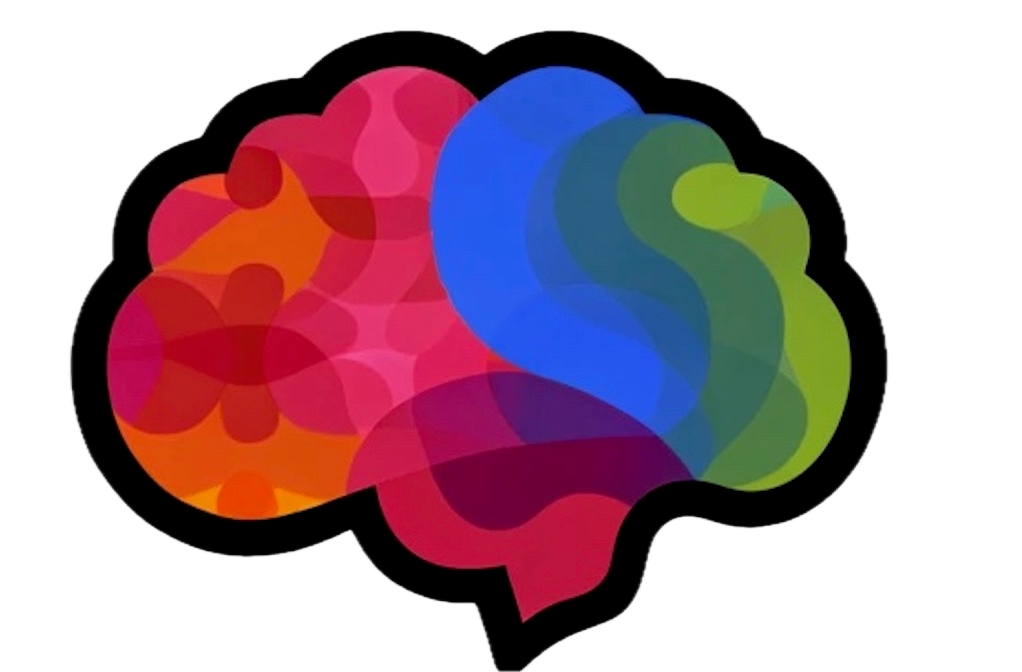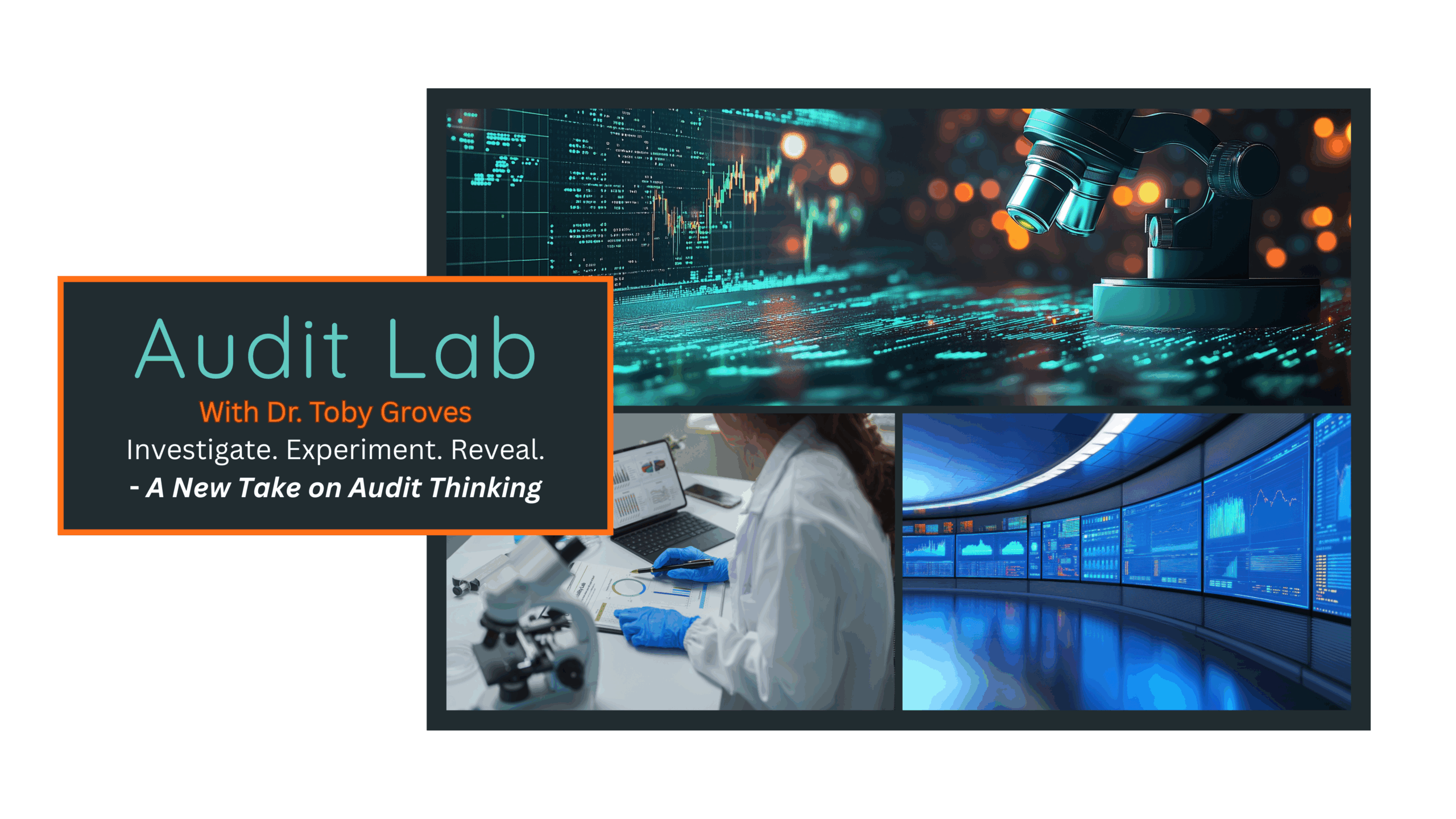Audit Lab
The Science of Better Auditing
This session offers NASBA credit- 1-hour Ethics and 7-hours Auditing
Audit Lab is a full-day immersive training that transforms the way auditors think and perform. Grounded in cutting-edge research on auditor reasoning, this workshop goes beyond theory—it engages you into realistic audit simulations and exercises that reveal how to leverage the human mind for better audit outcomes. Each topic features research-based insights into a key audit principle—then applying that knowledge in a simulation, seeing firsthand why it works. It’s an extremely powerful way to learn. Developed by Dr. Toby Groves based on his scientific study of auditor decision-making, the program alternates between focused content modules and live-action simulations where you’ll investigate fraud, triage control failures, and manage ethical dilemmas under real-world pressures. You will practice techniques of persuasive communication, team problem-solving, and dynamic skepticism in a risk-free environment that’s been called “the most fun I’ve ever had learning about auditing.” By day’s end, you will have sharper judgment, heightened skepticism, and science-backed strategies to elevate audit quality in your organization.
Key Features:
- Live Simulation Scenarios: Tackle realistic scenarios in teams – interactive role-plays that mirror real audit challenges with timed decisions and plot twists. These gamified exercises reinforce fraud detection, control evaluation, ethical decision-making, and stakeholder communication.
- Psychological Skill-Building: Participate in mini-experiments and lab activities that unveil cognitive biases (confirmation bias, anchoring, etc.) and demonstrate how to counteract them. Experience the impact of metacognitive prompts that improve your reasoning on the fly.
- Research-Backed Techniques: Learn and apply methods from behavioral science and collective intelligence research to auditing – including how to foster team “collective IQ,” how to design effective controls based on human behavior, and how to apply systems thinking to complex audit problems.
- Dynamic Debriefs and Discussions: Each simulation is followed by guided debriefs drawing out the lessons and connecting them to audit principles and real-world cases. You won’t just react – you’ll reflect and solidify insights, guided by an expert facilitator.
Learning Objectives:
By the end of this intensive workshop, participants will be able to:
- Enhance audit decision-making agility – Improve the ability to make sound decisions under uncertainty and time pressure by strengthening analytical flexibility, applying dual-process thinking, and rehearsing high-stakes scenarios.
- Communicate with impact – Craft and deliver audit findings and recommendations in a persuasive, stakeholder-tailored manner that drives action.
- Leverage collective intelligence – Utilize team diversity and social perceptiveness to improve group judgment and manage team dynamics to avoid groupthink and dominance issues.
- Assess and design effective controls – Understand the science behind why controls succeed or fail in practice and apply behavioral insights to strengthen control environments.
- Apply dynamic professional skepticism – Practice skepticism as an active process, continually updating beliefs as new information emerges rather than fixating.
- Recognize and mitigate cognitive biases – Heighten awareness of common decision traps (confirmation bias, anchoring, availability, overconfidence) and employ strategies (metacognitive prompts, peer challenge, structured techniques) to minimize their impact on audit judgments.
- Prioritize evidence effectively – Understand what psychological science says about attention and memory, enabling more effective risk identification and evidence gathering.
- Foster an ethics and quality-focused culture – Translate insights from the workshop into actions that promote an audit culture of curiosity, continuous learning, and integrity.
Topic Highlights:
- Persuasive Audit Communication: Techniques for impactful reporting and stakeholder persuasion, turning audit results into compelling calls to action.
- Audit Team Dynamics: Building collective intelligence in audit teams, balancing contributions, and improving group problem-solving outcomes.
- The Science of Effective Controls: How and why controls succeed or fail based on behavioral science principles, and how auditors can design and evaluate controls to account for real-world human behavior.
- Systems Thinking: Applying frameworks to manage audit issues that involve interconnected people, processes, and risks across the organization.
- Dynamic Professional Skepticism: Evolving the concept of skepticism with inward/outward focus and continuous hypothesis testing, supported by insights from cognitive psychology and Dr. Groves’ research.
- Cognitive Bias Labs: Fun, eye-opening exercises demonstrating biases (confirmation bias “traps,” attention blindness, anchoring effects) and practical debiasing techniques for auditors.
- Judgment under Pressure: Simulation of real-time decision-making in fraud investigations and control crises to practice maintaining objectivity and ethical judgment when stakes are high.
- Metacognitive Strategies: Tools like self-questioning, reflection breaks, and “thinking about thinking” approaches that auditors can embed in their workflows to improve reasoning quality.
Who Should Attend:
Internal auditors (financial, operational, IT, compliance) in corporate, government, or non-profit sectors who want to upskill for the modern audit environment. From junior auditors to audit managers and CAEs, all will benefit as the content is layered and the exercises scale to different experience levels. The program is especially valuable for audit teams to attend together, as it enhances team dynamics and a shared understanding of advanced concepts.
Why Attend?
This is not your typical CPE seminar – it’s a high-energy, experiential masterclass that has earned rave reviews for being “engaging,” “eye-opening,” and “a real-world crash course in audit thinking.” You will leave not only with new knowledge but with practical experience applying that knowledge, having navigated realistic audit scenarios start to finish. It’s the ultimate preparation to make the real audits you face feel easier, because you’ve effectively practiced on “hard mode” in the workshop. Elevate your professional skepticism, enrich your toolkit with science-backed techniques, and lead your audit engagements with greater confidence and insight.




